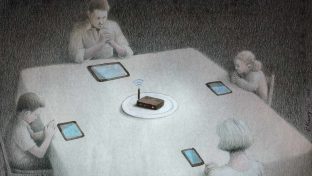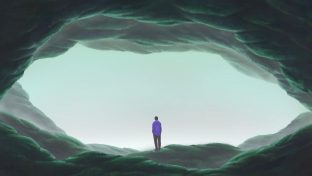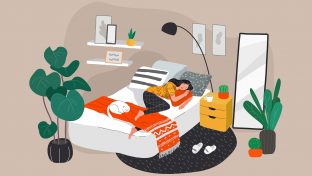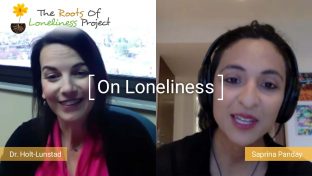An Artist’s Torment: How To Harness & Accept Creative Loneliness
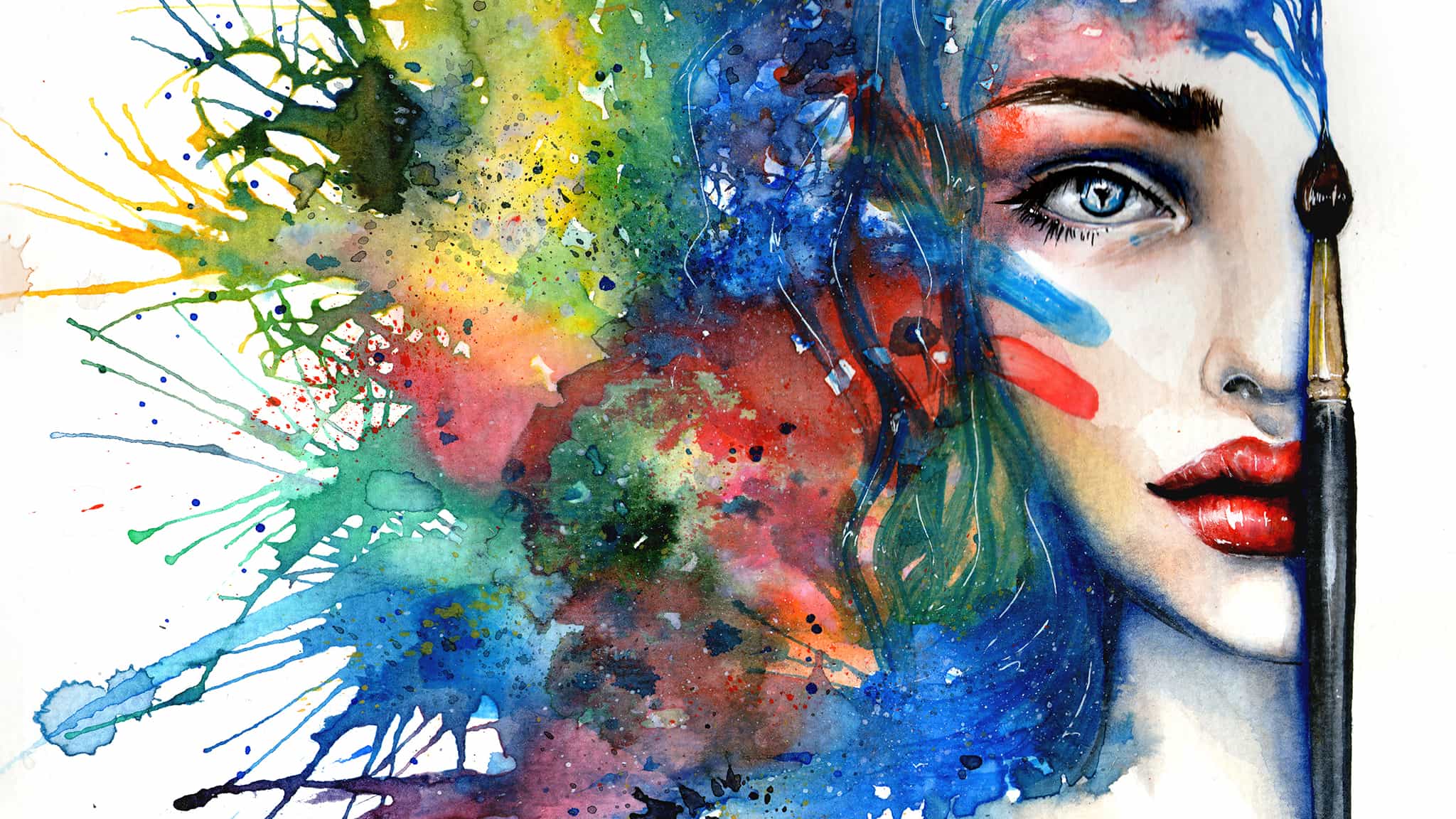
As an artist and creative, loneliness is inescapable, but understand that loneliness is part of your arsenal.
- Choose people who nourish your soul and make you feel valued. What you are doing (and creating) matters.
- Although the creative process can be draining and you might do your best work while alone, too much solitude can make you feel isolated.
- Remember to ground yourself so you don’t forget that in addition to being a creative soul, you are also a person with social needs that must be met.
Struggling with loneliness or having a mental health crisis?
- Suicide Prevention Lifeline: 1-800-273-TALK (8255); Deaf or hard of hearing dial 711 before the number or connect via online chat
When I quit my corporate job to become an artist, I had no idea what I was in for.
At the time I felt very lonely and isolated, akin to what I imagine Virginia Woolf meant when she spoke of, “some inner loneliness.”
I thought that by becoming an artist, I would finally, like many creatives, be able to break out of this feeling and find connection and communion.
I was wrong.
Instead, the process of creating plunged me into a deeper loneliness than I had ever known.
I could never have imagined how isolated I could feel.
How much time I would spend alone in my living room.
How hour after hour, sitting on a rickety chair, staring at an empty screen, I would fail to create.
How hard it would be to earn money.
How elusive the close-knit community of fellow artists I’d imagined would be.
How — despite all the time, sweat and tears I poured into them — my stories would disappear into oblivion.
And how no one that knew me before I was an artist, could understand what I was going through.
But I tried to embrace it all.
After all, wasn’t suffering and loneliness what being an artist was all about?
Rescuing Creativity From Loneliness And Mental Illness
Ernest Hemingway famously stated that “Writing, at its best, is a lonely life.” and encouraged writers to isolate themselves to create better work.
He believed high creativity and self-inflicted pain, even that which lead up to mental illness, went hand in hand, contributing thus to the tortured artist stereotype.
But the stereotype of the self-destructive artist is not only dangerous for artists and creatives, it is also not true.
Recent studies have yielded no definitive results on the link between creativity and mental illness while other research blames the creative environment for pushing creatives over the edge.
Thankfully, artists are speaking up.
This writer poignantly states, that rather than self-destruction, “the decision to keep searching, not suffering, is what makes an artist.”
There are, however, much better ways to handle it than he suggested.
How An Artist Can Both Embrace And Cope With The Loneliness Of A Creative Life
As a writer and creative artist, here are some tips to feel less lonely that helped me.
- First, surrender to loneliness.
When I started out, I thought I had an excess of loneliness and that it could be cured if I just created something.
But once I started writing, I realized that this very excess of feeling was giving me the inspiration to create.
I know now that I’ll always be a little lonely, and that this excess is not a problem that needs to be solved.
Artist Olivia Lang observed that “[l]oneliness might be taking you towards an otherwise unreachable experience of reality.”
So don’t fight loneliness.
Rather, allow yourself to experience it in many of its different forms and try to use it as inspiration for creativity.
- Secondly, allow yourself to be alone in artistic solitude and silence.
I initially found it very hard to sit alone in one place every day after the initial spark and excitement of inspiration from a creative idea subsided.
Whenever I’d get stuck, I’d watch Netflix or read the news or call a friend to talk about nothing in particular just to distract myself.
I quickly realized that doing that made me more restless and made me feel…interrupted.
So I started practicing dedicating two hours of every day just to my art as soon as I woke up. This not only gave me a sense of purpose, but I felt less isolated and developed an attachment to routine.
Now solitude, silence, and the place where I sit are sacred.
The discipline of setting aside quiet, uninterrupted time in one place, alone, while working on your craft is how you strengthen your mental focus to create.
But the keyword is discipline.
Be in real solitude and silence. Cut off all other distractions including your phone, the TV, your computer and yes, even your books.
This can be painful but there’s no other way to create your best work than through this discipline.
If you need motivation, read about how discipline and time alone created a great artist here.
- Thirdly, connect to the world at regular intervals.
When I write, the whole day can pass with just me alone in a room in front of a computer, not speaking to or interacting with anyone.
But when I stop, the fact that I’ve been alone in a room all day hits me hard and I crave companionship.
Being an artist often means doing solitary work but that does not mean that you are a solitary being.
This will also impact your creative spirit and your work.
So incorporate meetings with people on a regular basis.
But choose your company wisely.
In addition, take time for physical activity every other day at least. Your body needs to express itself too, and the endorphins will give you an extra boost of mental clarity and creativity.
- Fourthly, share your work with people you trust.
Tired of always working alone, I tried to find people I could commune with.
I went to writer meetups, to writer clubs, and joined a co-working space for artists.
It took me two years of searching to connect with a small number of people whom I could trust enough to share my work with.
Although it can be hard to find, seek a community of like-minded artists that you can learn from.
Share your work so that you can learn how to improve it.
Accept the vulnerability of being misunderstood. Accept the feelings of isolation and loneliness you’ll feel as a result of that too.
Remember, as an artist you create in order to share.
- Fifthly, remember why you make art.
When I started out writing, I was convinced I had to become a commercial success to justify my creative struggle.
When that didn’t happen, I felt like a massive failure.
It took me a while to realize that I wrote because I loved the process of creating.
Remind yourself regularly why you create and what it means for you so that you don’t set yourself up for a breakdown like I did.
- Six, find techniques to ground yourself.
The creative process is demanding and can be all-consuming.
I lost a lot of weight while writing because I’d forget to eat.
And that’s odd particularly because I love food.
But creating can sometimes feel like an out-of-body experience and we forget about the body like we do the material world.
That’s why it’s very important to have techniques that help ground you and find inner balance.
Whether that be seeing a therapist or practicing mindfulness or something else, find something you can do to ground yourself in your body and the world around you.
Closing Thoughts
Remember, just because you are an artist doesn’t mean that you don’t need to take care of your mental and physical health.
It doesn’t mean you should be isolated at all times or that you should seek loneliness to create the best work you can — despite normal feelings of loneliness.
Instead, create a routine you stick to.
Regularly connect with others who value you and can help you grow – take care of yourself.
And your creative soul will do the rest.
Now go and create!
Editor’s Note: This article is part of The Roots Of Loneliness Project, the first-of-its-kind resource that comprehensively explores the phenomenon of loneliness and over 100 types we might experience during our lives.
Find Help Now
If you’re struggling with loneliness as an artist, we’ve put together resources to meet you wherever you are — whether you want someone to talk to right now, or are looking for longer-term ways to help ease your loneliness.
- Suicide Prevention Lifeline: 1-800-273-TALK (8255); Deaf or hard of hearing dial 711 before the number or connect via online chat
- Resources & Emotional Support For Loneliness
- Volunteer & Pet Adoption Opportunities



